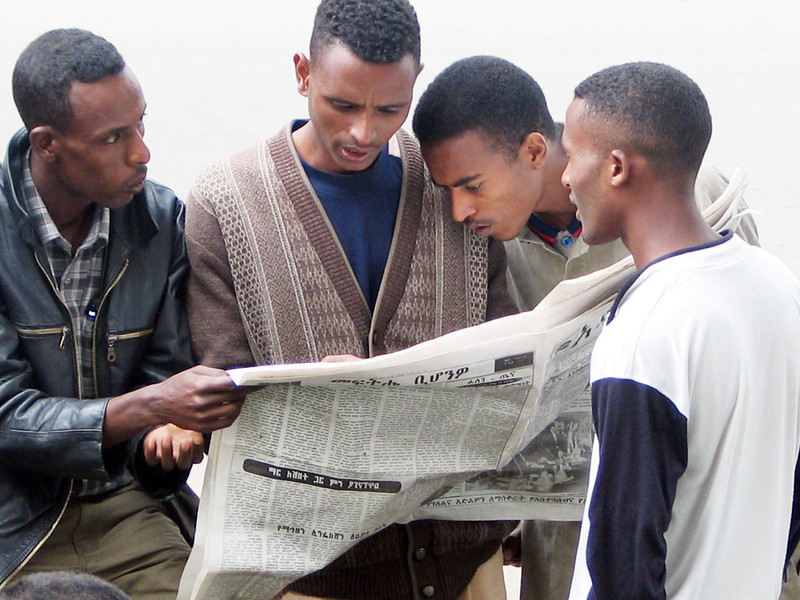We are excited to announce that Brink is now part of Africa Practice. Learn more
Ending recent speculation, Cameroonian President Paul Biya this morning announced his candidacy in the upcoming elections on 7 October 2018. While many Cameroonians were beginning to suspect that the 85-year-old president would not have the appetite to stand for further office, Biya has given no sign of handing over the reins of power or paving the way for a succession. Amid jostling within the senior echelons of the ruling party, he has been careful to keep his cards close to his chest and to stifle any figure seen to be posing a real threat to his authority by harbouring overt presidential ambitions. With Biya now highly likely to win the elections, Cameroon is facing the prospect of an 85-year-old leader beginning a further seven-year term. This will bring little in the way of reformist hopes, or prospects for a moderation in the government crackdown on separatists in Cameroon’s two Anglophone regions. More likely, Biya’s candidacy will drive a further uptick in unrest as election politics feed into pre-existing issues to fuel a volatile election cycle.
President Biya has long nurtured and maintained a careful ethnic balance in his successive governments and cabinets, adeptly manipulating political patronage networks, institutional resourcing and economic policy in his favour. In particular, he has employed a ‘divide-and-rule’ approach to managing political opposition, variously co-opting, marginalising and repressing dissenters or potential rivals. The latest and most notable rival to be sidelined in March this year was Biya’s decade-long Director of Civil Cabinet, Martin Belinga Eboutou. Public warning shots were also fired at other successor candidates like Minister of Finance, Louis-Paul Motaze and Minister in Charge of Presidential Affairs, Rene Emmanuel Sadi, raising prospects that Biya was shoring up his position with a view to standing once more.
Biya’s bid for the presidency will now feed into pre-existing tensions in parts of the country. Despite the political dominance of the president and his ruling Cameroonian People’s Democratic Movement (also known by its French acronym: RDPC), the government has faced rising socio-economic discontent and ethno-regional competition over the past three years. Poor public management has been coupled with the ‘twin shocks’ of the oil price slump and heightened security threats due to Boko Haram in the Extreme North.
It’s within this socio-economic context that peaceful protests erupted in the Anglophone regions in late 2016, to which the government response was heavy-handed. Several protester deaths and disenfranchising government policies, such as a lengthy internet blackout, fed the simmering discontent and Anglophone support for secession – a long-burning but previously low-intensity feature of the region’s political fabric. On the anniversary of the Southern Cameroons’ independence from the UK, anti-government themes dominated the rallies and security services reacted with force. Since then, the conflict has escalated rapidly with unknown scores of protesters being killed, often reportedly in an extrajudicial manner (e.g. a horrific viral video currently making the rounds of the internet, which has admittedly been impossible to verify). Anglophone secessionist rebels have in turn organised themselves and launched dozens of deadly ambushes on Cameroonian soldiers.
President Biya’s announcement that he is running for office will undoubtedly fan the flames of the conflict. But the poor socio-economic state of affairs and rumbling insecurity in parts of the country are unlikely to be enough to unseat Biya. Firstly, the country’s linguistic, ethnic and regional divides provide a social fabric which Biya will continue to exploit to his own advantage, impeding the prospect for a rival candidate to emerge and unify the vote. Secondly, the foremost political alternative is the Social Democratic Front (SDF), which has long been undermined by perceptions that it is primarily focused on the interests of the western Anglophone minority, and that the party mirrors the corrupt practices, centralised power structures and patronage systems of the RDPC. However, it is also worth highlighting two factors which might dampen support for Biya. Firstly, the naming in February of Joshua Osih to replace John Fru Ndi at the head of the SDF creates a new current of leadership from which to challenge the status quo. Secondly, northern RDPC elites in particular are growing increasingly restive around Biya’s continued grip on power and reluctance to plan a succession – though Biya has gone to considerable lengths to weaken this historically powerful elite. These two dynamics as well as the country’s broader socio-economic malaise are unlikely to influence the vote outcome, but they will form the foundations for a political struggle that will continue to play out around the ageing president as Cameroonians look to a future beyond Biya.
With a multitude of varying interests and ethnic alignments, it is difficult to predict quite how the election and its aftermath will pan out. Unfortunately however, it is hard to see a scenario in which instability and uncertainty are not prominent in Cameroon’s immediate future. Stronger anti-establishment sentiment and a preoccupied government will impact negatively on Cameroon’s commercial and fiscal prospects – the country is in the midst of several highly ambitious and expensive infrastructure projects. A watershed moment is imminent in Cameroon, but whether it is the unexpected removal or post-election resignation of Biya, or a decisive operation to crackdown on dissent, the country looks like it’s in for a rough ride.
Adrian Fielding is a senior consultant in Africa Practice’s Intelligence & Analysis team. In this role, he advises clients on political, regulatory and reputational risks associated with market entry or transactions with counterparties in sub-Saharan Africa. Based in Casablanca, he covers Francophone and Lusophone Africa.
Proud to be BCorp. We are part of the global movement for an inclusive, equitable, and regenerative economic system. Learn more



